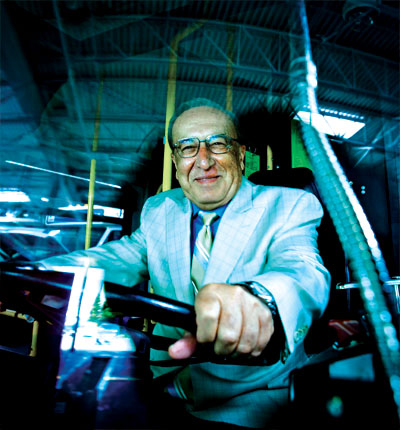The original Reuters article is here: Foreign executives arrested in Cuba in 2011 await charges
By Marc Frank; (Editing by Jeff Franks and Jackie Frank)
HAVANA | Tue Oct 9, 2012 2:59pm EDT
HAVANA (Reuters) – Executives of three foreign businesses shut in 2011 ostensibly for corrupt practices have been held by Cuban authorities for a year or more and still have not been charged with a crime, sources with knowledge of the cases said this week.
Their ongoing legal limbo has put a behind-the-scenes strain on Cuba’s relations with their home countries – Canada and Britain – where the legal process protects suspects from lengthy incarceration without charges, western diplomats told Reuters.
Police closed the Havana offices of the British investment and trading firm Coral Capital Group Ltd last October and arrested chief executive Amado Fakhre, a Lebanese-born British citizen.
A month earlier authorities shut down one of the most important Western trading companies in Cuba, Canada-based Tokmakjian Group, after doing the same in July 2011 to another Canadian trading firm, Tri-Star Caribbean.
Cuban authorities say the cases, which are part of a larger crackdown on corruption on the communist island, are being handled within the letter of Cuban law.
The local legal process does call for defendants to be informed of why they were arrested and sets out time limits for charges to be filed, but they can be waved indefinitely in “exceptional circumstances.”
Cy Tokmakjian, head of the Tokmakjian Group, and Sarkis Yacoubian, head of Tri-Star, were arrested and confined to comfortable safe houses when their businesses were closed, but earlier this year both were transferred to La Condesa, a prison for foreigners just outside Havana.
Coral Capital’s Fakhre was recently transferred to a military hospital when he fell ill after months in prison.
His company’s chief operating officer, British citizen Stephen Purvis, was arrested in April and is in the Villa Marista prison run by state security, sources said.
A number of other foreigners and Cubans who worked for the companies remain free, but cannot leave the island because they are considered witnesses in the cases.
STILL UNDER INVESTIGATION
Asked at a Havana penal conference last week when charges might be filed against the businessmen, Cuban Attorney General Dario Delgado told Reuters the investigation had not concluded because of the complicated nature of the alleged crimes.
“The cases are in the investigative stage and still have not been presented to the court, but I can guarantee they are proceeding according to Cuban law,” he said.
“There isn’t the slightest reason for concern. These cases, which involve economic crimes, are very complicated. They do not involve, for example, traffic violations or a murder,” he said.
Cuban Comptroller General Gladys Bejerano told reporters at the same conference that the length of investigations depended on the behavior of those involved.
“When there is fraud, tricks and violations … false documents, false accounting … there is no transparency and the process becomes more complicated because a case must be documented with evidence before going to trial,” she said.
Western diplomats acknowledged that the cases were being handled within Cuban law, but said there was no due process by western standards.
Cuba’s judicial system has been widely criticized because all branches are controlled by the state and inevitably this leads to tension when foreign nationals are arrested.
“It is not just that they haven’t been charged. They can be questioned without a lawyer present and that lawyer would work for the state anyhow,” one diplomat said.
Under Cuban law a defendant must be represented by a Cuban public defender, though other lawyers can consult on the case, they said.
“There is regular, monthly counselor access and some contact with Cuban defense lawyers, but we certainly would like to see the process proceed more quickly and transparently,” another diplomat said.
Soon after taking over for his ailing brother Fidel in 2008, President Raul Castro established the comptroller general’s office with a seat on the ruling Council of State, even as Cuba began implementing market-oriented economic reforms.
The measure marked the start of the campaign to weed out corruption and reflected concern over graft that followed similar reforms in other communist countries, foreign and local experts said.
Since then, high-level corruption has been uncovered in one sector of the economy after another, from the cigar, nickel, and communications industries, to food processing and civil aviation.



Pingback: The Cuban Economy – La Economía Cubana | Foreign executives … | Radio Click Paraguay